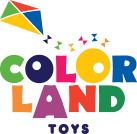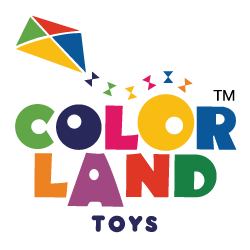How To Develop Language Skills in Toddlers?

The toddler years mark a crucial phase in a child's development, especially in terms of language acquisition. Language skills acquired during this period play a pivotal role in shaping a child's cognitive abilities and future academic success. In this blog, we will explore how to develop language skills in toddlersand how our interactive toys can boost their speaking and understanding skills.
Understanding Toddler Language Development
- Early Language Milestones
Toddlers undergo rapid language milestones during their second and third years of life, transitioning from initial babbling and cooing to the formation of simple words and phrases. Understanding and acknowledging these milestones is essential in establishing a conducive environment that nurtures language development, fostering a solid foundation for effective communication.
- Importance of Vocabulary Expansion
Vocabulary acquisition stands as a pivotal element in the journey of toddler language development. Providing exposure to a diverse array of words and concepts not only enriches their linguistic skills but also sets the stage for the cultivation of more advanced language abilities, fostering a comprehensive and articulate expression.
- Social Interaction and Communication Skills
Social interaction plays a pivotal role in the intricate web of language development. As toddlers engage with their surroundings, they learn to employ non-verbal cues, gestures, and facial expressions for communication. These interactions, whether with caregivers, peers, or family members, contribute significantly to refining their communication skills, shaping them into effective and expressive communicators.
The Role of Play in Language Development
- Play as a Learning Tool
Play, as a natural and indispensable activity for toddlers, not only brings joy but also acts as a powerful catalyst for learning and development. It provides children with the opportunity to explore their surroundings, grasp cause-and-effect relationships, and experiment with language in an engaging and interactive manner, laying the groundwork for cognitive and linguistic advancement.
- Imaginative Play and Language Skills
Toys that foster imaginative play play a pivotal role in language development by empowering toddlers to construct and narrate stories. This form of play acts as a dynamic platform for expanding their vocabulary and refining narrative skills, fostering creativity and linguistic prowess in an enjoyable and constructive manner.
- Interactive Toys and Speech Development
Specifically crafted toys aimed at promoting speech and language skills become valuable tools in a toddler's developmental journey. These interactive toys are thoughtfully designed with features that engage children in activities, effectively stimulating their language centers and contributing to the enhancement of speech clarity and communication proficiency.
Incorporating Interactive Toys into Daily Routine
- Establishing a Playful Learning Environment
To maximize the benefits of interactive toys, parents and caregivers should create a playful learning environment at home. Designate specific play areas with a variety of toys that cater to different aspects of language development.
- Joint Play and Parental Involvement
Engaging in joint play with toddlers is crucial for language development. Parents and caregivers should actively participate in play sessions, asking open-ended questions, providing descriptive language, and encouraging verbal responses.
- Balancing Screen Time with Hands-On Play
While technology can be a valuable tool in language development, it is essential to strike a balance between screen time and hands-on play. Interactive toys provide a tangible, sensory-rich experience that complements digital learning.
In conclusion, language development in toddlers is a complex process that requires a supportive and enriching environment. We, through our range of interactive toys, play a pivotal role in nurturing speech and language skills in young children.
These toys are designed to engage toddlers in activities that promote vocabulary expansion, phonics awareness, and overall language proficiency. By incorporating these interactive toys (like LeapFrog Speak & Learn Puppy, VTech Alphabet Hippo, Viga Learning Alphabet, and Lexibook Paw Patrol Bilingual Educational Tablet) into daily routines and playtime, parents and caregivers can provide toddlers with a holistic language development experience that is both educational and enjoyable.
We recognize the significance of early childhood development and strive to create products that align with the needs of growing minds. Investing in these toys not only enriches a child's playtime but also lays the foundation for a lifetime of effective communication and learning. As we celebrate the joy of play, let us acknowledge the invaluable role that we play in nurturing the language skills of our youngest learners.






 +971 50 150 4446
+971 50 150 4446